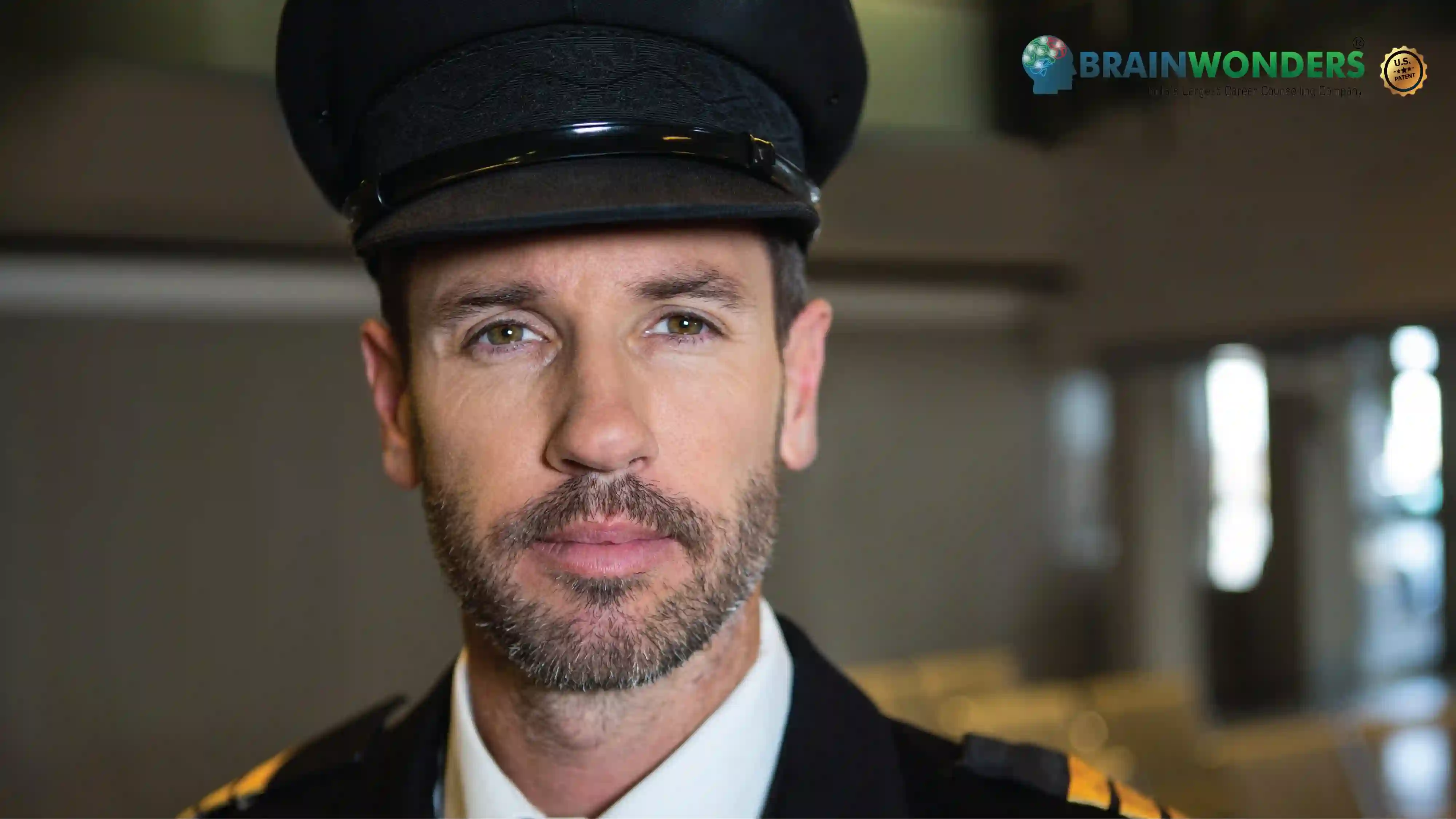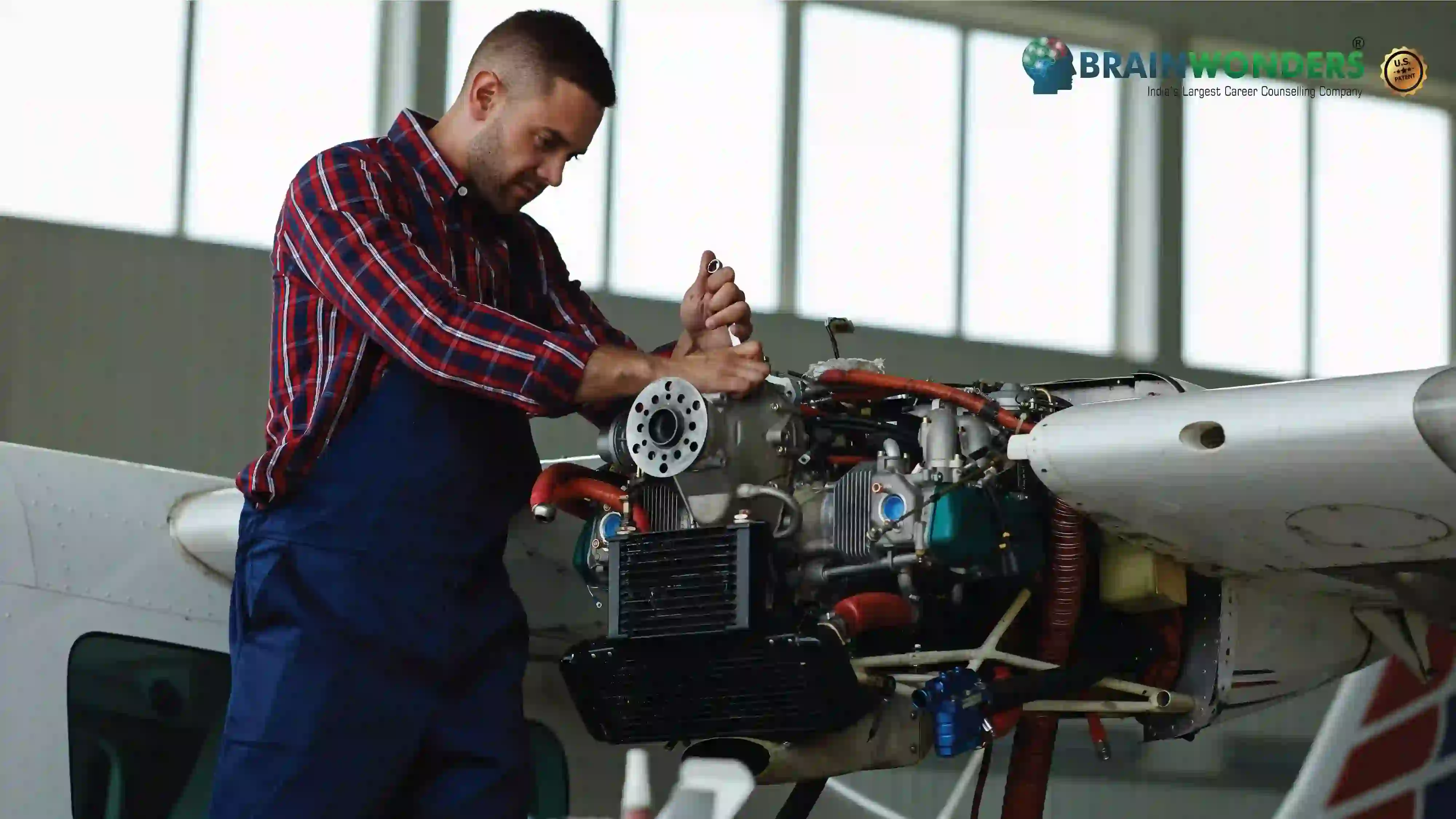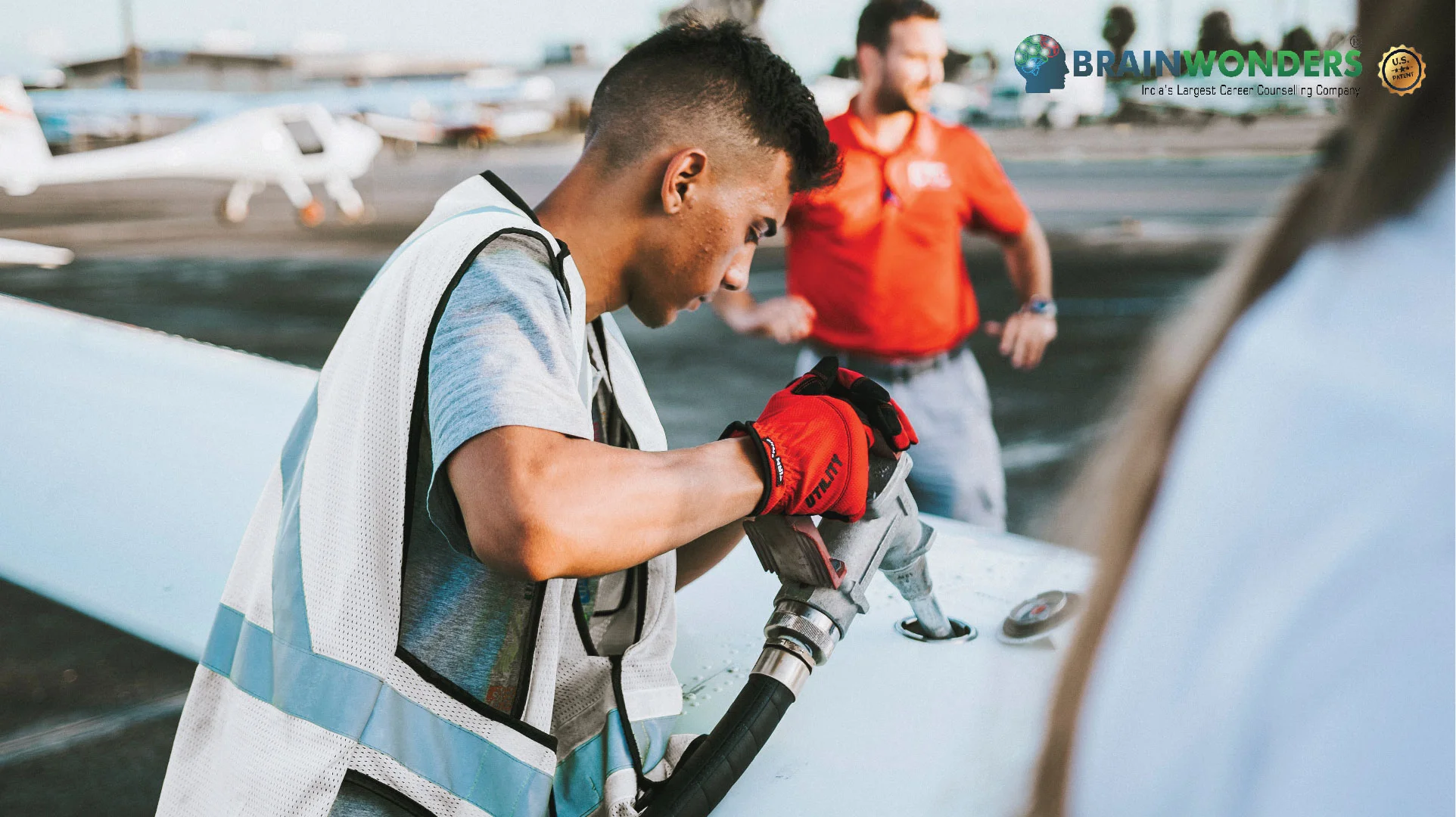How to become a Commercial Airline Pilot
Overview, Courses, Exam, Colleges, Pathways, Salary

Overview
Who is Commercial Airline Pilot ?
Commercial airline pilots are tasked with safely transporting the aeroplane passengers to their destination. They aim to provide on-time delivery via air while maintaining the safety of the passengers, cargo, and aircraft. They are highly skilled professionals who are authorised to fly aircrafts such as aeroplanes and helicopters for business purposes. Apart from transporting passengers and cargo, they can also be involved in emergency rescue operations, aircraft testing, charter flights, and firefighting. They undergo extensive academic and practical training as they shall be primarily responsible for the safety of others. They undergo tests at regular intervals to ensure they are physically fit to withstand the strenuous work conditions. This also includes periodic training and skills checks throughout their career to ensure they are competent to operate an aircraft responsibly. Additional certifications of instrument ratings and multi-engine rating are required for a commercial airline pilot to expand their scope of work.
Typical day at work
What does Commercial Airline Pilot do?
- Monitor information regarding the weather conditions, fuel consumption, and the airline engines during the flight
- Adhere to the flight plans and procedures and the safety regulations
- Ensure the safety through a thorough check of the functioning of the engines, hydraulics, aircraft systems as well as the cargo loads and fuel supplies before takeoff
- Coordinate with the ground crew, crew members, and air traffic control staff during taking off and landing process
- Create flight plans taking into account the altitude, routes, speed and fuel consumption
- Making crucial decisions to accommodate for changes in the planned procedures or in-flight issues as necessary
- Recording details of any deviations from flight plans and generating reports of the same
- Communicating to the passengers about the details of the journey
- Ensure that the aircraft is properly balanced
Abilities and Aptitude needed
What are the skills, abilities & aptitude needed to become Commercial Airline Pilot?
Extensive training and knowledge are needed in order to responsibly function as a commercial airline pilot. They must be highly observant of details to accurately anticipate and identify changes in the weather, the aircraft, or any other conditions that call for a deviation from the flight plan. Those aspiring to be commercial airline pilots must be equipped with excellent spatial abilities as well as hand dexterity to effectively handle the responsibilities of this role.
They should possess the ability to understand and employ technical information that is necessary for the data analysis that is required on the job. They must be highly skilled in working under pressure, with the ability to make quick, responsible, and confident decisions in time-sensitive situations. This necessitates excellent problem solving and reasoning skills. One must be physically fit, particularly with regards to hearing and vision in order to carry out the tasks of a commercial airline pilot. Strong communication abilities and people management skills are also required for effectively coordinating with their co-pilots, cabin crew, ground crew, and communication tower crew.
Salary
Salary for Commercial Airline Pilot?
The salary of an "Commercial Airline Pilot " career in India can vary significantly based on experience, qualifications, location, and the organization's size.
- Minimum Monthly Salary : The monthly salary can be from INR 15,000 to INR 25,000.
- Maximum Monthly Salary : The monthly salary can be from INR 5,00,000 to 12,00,000 or more
- Annual Salary : The annual salary for commercial airline pilots in India can range from INR 60 lakhs to several crores or more.
- Highest Paying Jobs and Scope: The highest-paying job in the aviation industry generally belongs to top management positions, such as Chief Executive Officer (CEO), Chief Operating Officer (COO), Chief Financial Officer (CFO), and other executive roles. The scope in the aviation industry for pilots can be promising, especially as the Indian economy grows, air travel demand increases, and airlines expand their fleets. However, it's essential to consider that the industry can also be subject to fluctuations depending on economic conditions, fuel prices, and other external factors that affect the overall aviation sector.
Pathways
How to become an Commercial Airline Pilot?
Entrance Exam
Entrance Exam for Commercial Airline Pilot ?
Courses
Which course I can pursue?
Best Colleges
Which are the best colleges to attend to become an Commercial Airline Pilot?
Industries
Which Industries are open for Commercial Airline Pilot?
Commercial Airline Pilots primarily work in the aviation industry, specifically within the commercial airline sector. Within the aviation industry, Commercial Airline Pilots can find employment in the following sectors:
- Commercial Airlines: The most common and obvious industry for Commercial Airline Pilots is working for commercial airlines as First Officers or Captains. They operate scheduled flights, regional routes, and international flights, depending on the airline's network.
- Cargo Airlines: Cargo airlines specialize in transporting freight and packages rather than passengers. Commercial Airline Pilots can also work for cargo carriers, operating aircraft to deliver goods worldwide.
- Charter Airlines: Charter Airlines provide on-demand air travel services to customers, including corporations, tour groups, sports teams, and individuals. Pilots in this sector fly charter flights as needed, often to various destinations.
- Business Aviation: Commercial Airline Pilots may find opportunities in business aviation, where they fly private jets and aircraft for corporations, wealthy individuals, and executives.
- Low-Cost Carriers: Low-cost carriers, also known as budget airlines, operate with a focus on offering affordable airfares to passengers. Commercial Airline Pilots can work for these carriers, flying passengers to popular destinations.
- Regional Airlines: Regional airlines operate shorter flights to connect smaller airports with major hubs. Pilots working for regional airlines often feed passengers into larger airline networks.
- Fractional Ownership Companies: Fractional ownership companies offer shared ownership of private jets to individuals and businesses. Commercial Airline Pilots may work as Captains for these companies, flying owners and guests to various destinations.
- Corporate Flight Departments: Some companies have their flight departments with corporate aircraft. Commercial Airline Pilots can work as corporate pilots, flying company executives, and employees.
- Government and Military: In some countries, Commercial Airline Pilots may find opportunities to work as pilots for government or military aviation operations, transporting government officials, or conducting military flights.
internship
Are there internships available for Commercial Airline Pilot?
Internship opportunities for a Commercial Airline Pilot may not be as common as in some other industries due to the specialized nature of pilot training and licensing. Here are some potential avenues for internships or cadet programs for individuals interested in becoming Commercial Airline Pilots:
- Cadet Pilot Programs: Some airlines offer cadet pilot programs, where selected candidates undergo comprehensive training to become commercial pilots. These programs often include flight training, ground school, and mentorship by experienced pilots.
- Flight Training Academies: Flight training academies or aviation schools may have internship opportunities for students enrolled in their pilot training programs. Interns could assist in flight operations, ground instruction, and simulator training.
- Aviation Companies: Aviation companies involved in charter services, cargo operations, or private aviation may offer internships that expose candidates to various aspects of the aviation industry.
- Regional Airlines: Some regional airlines offer internships to aspiring pilots, providing them with insights into regional air operations and the opportunity to gain flying experience.
- Aviation Events and Air Shows: During aviation events and air shows, there may be opportunities for aspiring pilots to intern with aviation companies or organizations participating in these events.
- Aviation Associations: Aviation associations and organizations, such as the Aircraft Owners and Pilots Association (AOPA), may offer internships to support their initiatives and outreach programs.
Career outlook
What does the future look like for Commercial Airline Pilot?
Commercial airline piloting is one of the most exciting and rewarding career choices available. As commercial airline pilots, they are recruited by large private sector enterprises as well as public sector organisations. They typically work for major airline companies, as well as regional airlines or providers of non-scheduled aviation services. Other employment opportunities include working for hospitals, charter companies, and flight schools. They start out as co-pilots before acquiring the position of a commercial airline pilot or a full officer. With ample experience in the field, they can advance to the position of a captain, or an operations manager, or work as a flight training instructor.
With regards to the working hours of a commercial airline pilot, they have to work on a flexible schedule as there are no fixed work hours. They are often required to work during festivals or holidays. Typically, a commercial airline pilot shall be scheduled to work for up to four short flights a day or one long flight. They receive paid time off and other bonuses as a part of their employment.



